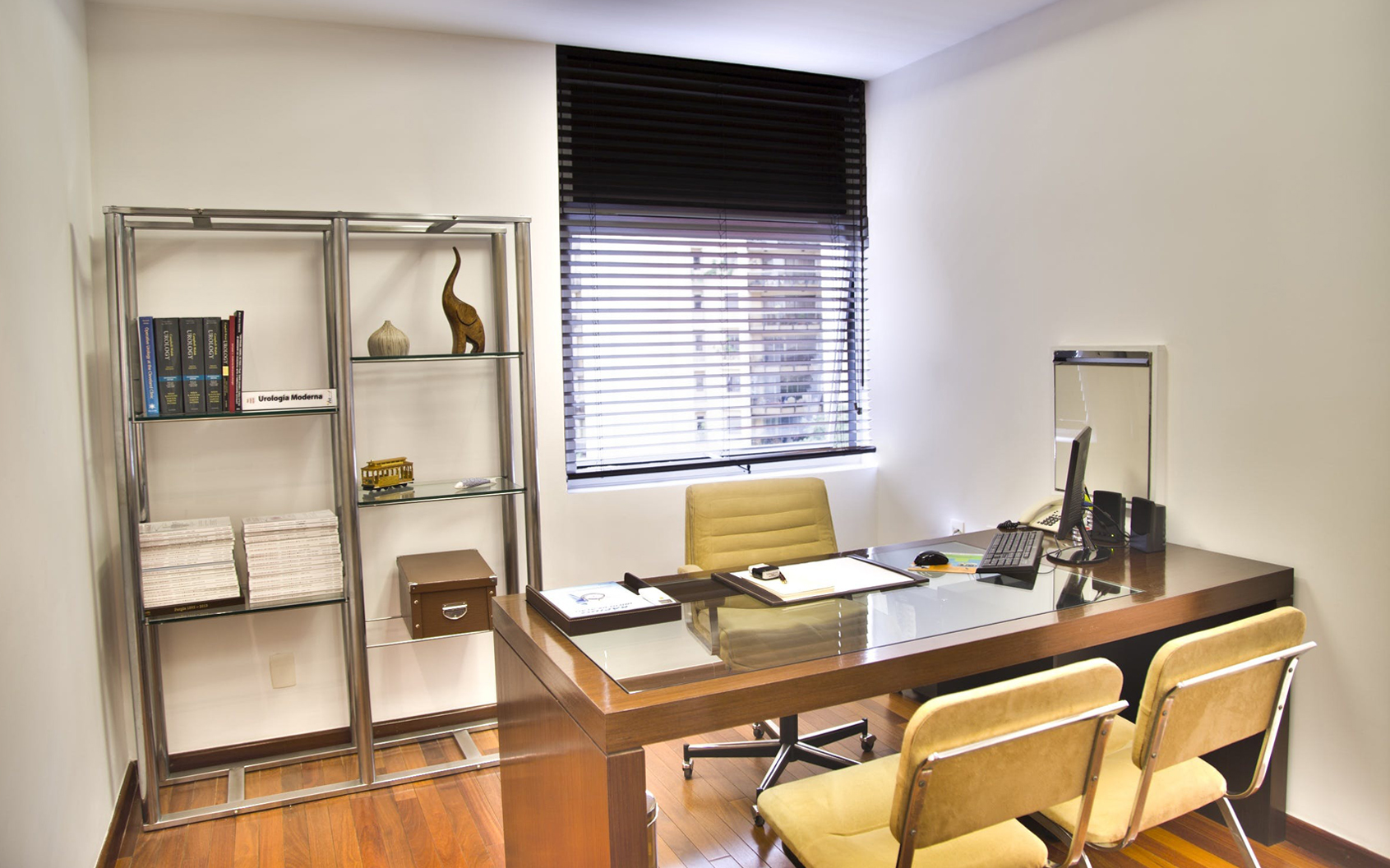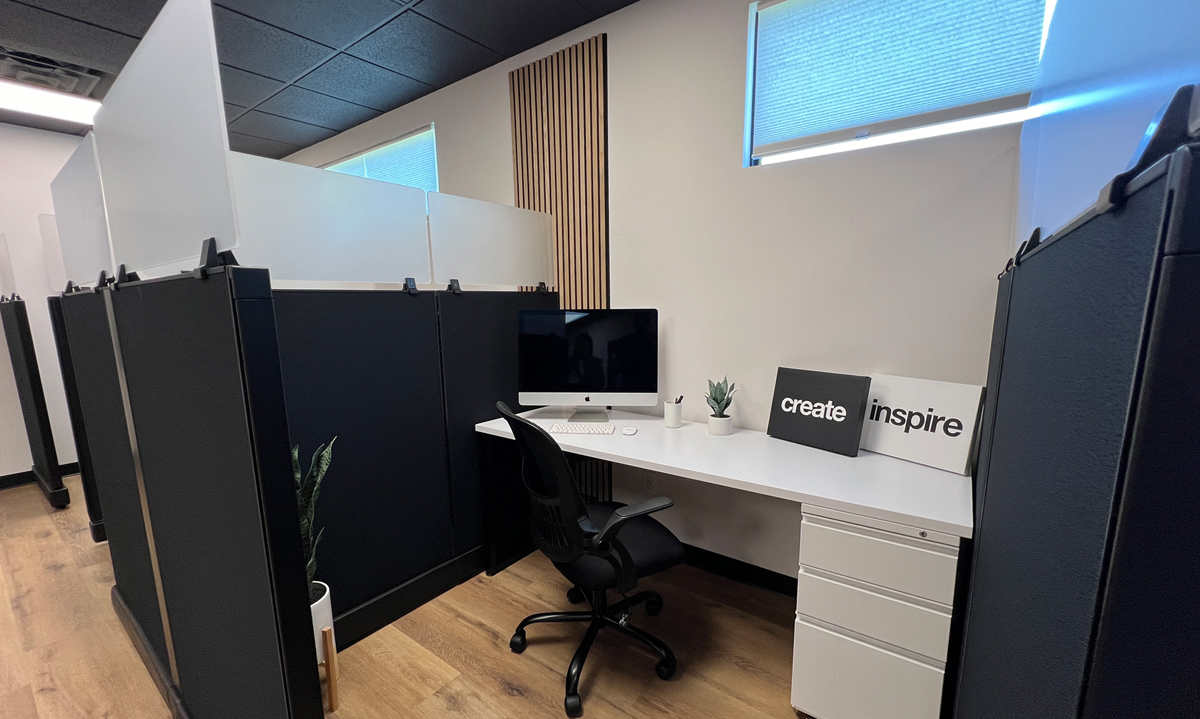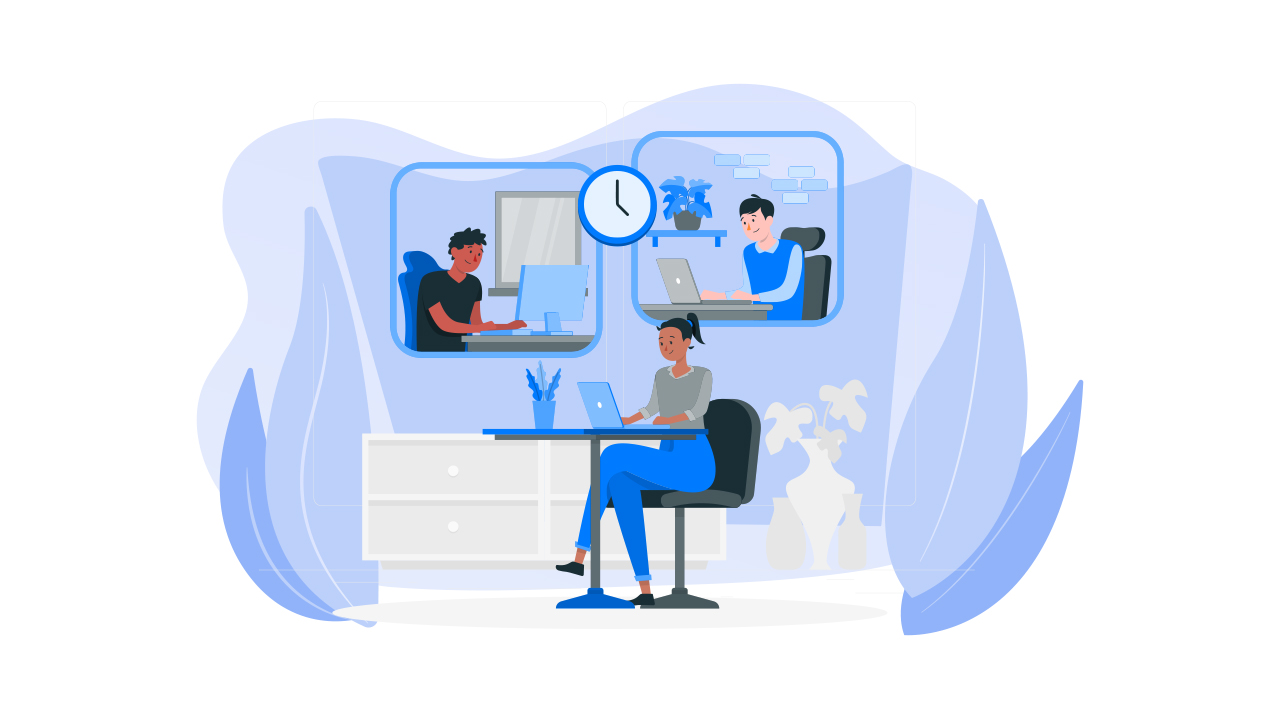
Work-Life Balance Redefined: How Private Working Spaces Enhance Physical & Professional Well-being

Amidst the challenges of attaining a healthy work-life balance, a game-changing phenomenon within the coworking industry emerged as a solution – private workplaces. A private office suite or working space within a coworking facility is an enclosed dedicated area where professionals can work individually or as a team, allowing them to benefit from the privacy and shared resources and personalize their surroundings. Coworking spaces have been hailed for their ability to dismantle the barriers seen in conventional offices and create an atmosphere conducive to creativity and unrestricted collaboration. Integrating private office rooms in this vibrant environment was a significant enhancement or upgrade. In coworking spaces, private offices offer a paradigm where autonomy is paramount. These spaces allow people to customize their workspace, promoting a sense of ownership beyond the traditional confined office space. This results in an environment where professionals can determine when to engage in the collaborative buzz of shared areas and when to retreat into their private sanctuaries’ quiet, concentrated cocoons. This article aims to uncover how these private workplaces go beyond traditional boundaries while providing a fresh perspective on our notion of work-life balance.
Why Work-Life Balance Is So Important?
Before discussing private workspaces, let’s understand why work-life balance is essential. A healthy work-life balance is crucial for a professional’s well-being and success. According to The Muse’s 2023 user survey, 75% of the employees surveyed plan to hunt for a new job within the next 12 months, and most respondents (70%) stated that work-life balance is the most crucial component of a new job. Some key reasons why work-life balance is essential are given below:
Improved Physical and Mental Health
According to a survey, 83% of American workers experience stress at work. About 40% of US workers say their jobs are very stressful. And 25% of those surveyed say their jobs are the most significant source of stress. The equilibrium between personal life and professional life helps manage and mitigate chronic stress, which, as a result, works as a contributor to physical and mental issues. Moreover, sufficient time for relaxation and personal activities can substantially reduce depression, anxiety, and other psychological problems.
Improved Mindfulness and Increased Concentration
Mindfulness and concentration are essential factors influencing mental well-being and cognitive function, eventually significantly elevating overall productivity. The impact of a healthy work-life balance is profound in improving mindfulness and increasing concentration. Maintaining that line between work and personal life allows individuals to be present at the moment, enhancing mindfulness in personal and professional life. A balanced life may also prevent individuals from emotional exhaustion, which can jeopardize concentration and other cognitive functions.
Higher Job Satisfaction & Increased Personal Growth
It is apparent that when employees are satisfied with their jobs, it fosters the company’s potential for growth. When companies follow a work culture where work-life balance is preferred, it stimulates a positive vibe among the employees, increasing job satisfaction. A healthy work-life balance is also crucial for individuals’ personal growth. It enables them to pursue their learnings, develop new skill sets, and help them grow as individuals and professionals.
Enhanced Creativity & Innovation
Embracing a balanced life empowers individuals to participate in diverse activities outside of work, promoting creativity and innovation. Breaks from work are necessary to relax the mind, charge up, and think creatively when we return to work. Several other essential aspects of work-life balance include healthy lifestyle management, social engagement, stronger relationships, and more. Private working spaces are a catalyst to balance personal and professional life.
How Private Working Spaces are Redefining Work-life Balance
A new era of autonomy, flexibility, and a comprehensive approach to professional and personal life is being ushered in by private offices, reshaping the conventional concept of work-life balance. Some significant points about how private office rooms redefine work-life balance are discussed below:
Embracing Autonomy
Unlike traditional office cubicles, private working spaces in coworking environments permit people to tailor their workspaces to reflect their individual needs. This sense of autonomy enables individuals to choose where to work, customize furniture placement, select the ambiance that suits their preferences, and more. These personalized spaces can cultivate the feeling of professional independence, allowing individuals to have more control over their integration of work and life. Moreover, the freedom of choosing their work hours and schedules enables them to align their professional responsibilities with personal commitments, contributing to a more balanced and adaptable daily routine.
Redefined Flexibility
Flexibility is the essence of coworking, and private offices in coworking spaces magnify this trait. This characteristic enables individuals to structure their work hours to align with personal preferences, fostering strategic planning, reducing the need for extended working hours, and encouraging a well-balanced time distribution. Private office rooms allow for flexible work schedules, showing recognition that different people reach their productivity peaks at other times. This promotes a seamless transition between work and personal commitments, fostering a harmonious work-life blend. Cultivating work-life balance involves the flexibility to take breaks when needed, free from rigid constraints. This adaptable approach nurtures moments of relaxation, offering a defense against the risks of burnout.
Establishing A Physical Boundary
The challenge of working remotely often involves drawing distinct lines between personal and professional lives. Most people working from home often get overwhelmed managing their personal and professional responsibilities as the border between them gets blurred in that environment. Private working spaces come to the rescue by providing individuals with a designated area exclusively for work. Physical boundaries guarantee that the areas used for personal living and work are visibly distinguished. This distinction facilitates individuals to experience a mental shift that makes it easier for them to toggle between their personal and professional lives. A Survey shows that 22% of remote work employees have trouble unplugging. The physical boundary in a workspace allows for more focused and uninterrupted work periods that lead to higher productivity and a smoother transition to a stress-free personal life, decreasing the common “always-on” work culture.
| Aspect | How Private Office Suites Redefine Work-Life Balance |
|---|---|
| Privacy and Focus | Private office suites provide a quiet, dedicated space, minimizing distractions and fostering deep concentration. |
| Flexibility | Customizable layouts allow individuals to create a workspace tailored to their needs, promoting flexibility in their work. |
| Work-Life Separation | A private office establishes a clear boundary between work and personal life, supporting a healthier work-life balance. |
| Personalized Environment | Members can personalize their office with decor and amenities, creating a comfortable and inspiring work environment. |
| Networking Opportunities | Despite privacy, access to communal areas fosters networking, collaboration, and community within the coworking space. |
| Professional Image | Private offices enhance the professional image of businesses, providing a prestigious space for client meetings and presentations. |
| Access to Amenities | Enjoying coworking amenities, such as meeting rooms, lounges, and kitchenettes, complements the private office experience. |
| Wellness Programs | Coworking spaces offer wellness programs, physical activities, mindfulness, and stress relief opportunities. |
| Professional Development | Networking events, workshops, and seminars hosted in the coworking space contribute to ongoing professional development. |
| Supportive Community | Private office members become part of a supportive community, offering camaraderie, mentorship, and collaborative opportunities. |
Fig: The above table shows how Brandnook private offices can enhance overall well-being.
Reduced Distraction, Improved Focus, and Enhanced Productivity
A more effective use of working hours is made possible by reducing workplace distractions, which improves focus and overall productivity. When time is used more productively, there tends to be less need for extended work hours; hence, it frees up more time for personal activities and contributes to a healthy balance between work and personal life. This dedicated environment can promote mindful work habits as well. A greater focus gives people more authority over their work dynamics, resulting in a more predictable and controllable workload and less likely to spill over into personal time due to work-related stress. In summary, the harmony of reduced distraction and optimized focus can catalyze heightened efficiency and productivity in the professional realm, leaving more time and mental space for a more fulfilling personal life away from work commitments.
Nurturing Mental Health
The impact of work on mental health has recently become a big topic of discussion. There is a considerable influence of when and where an individual works on their mental status. A private office suite offers a regulated setting that helps reduce distractions and improve focus. This leads to more efficient job output, lower stress levels, and improved mental health. Private offices in coworking environments promote autonomy and flexibility, allowing individuals to take mindful breaks when necessary. These breaks support mental restoration, prevent burnout from work-related stresses, and enhance overall well-being. Since private working spaces enable individuals to be more productive during work hours, they help them disconnect more effectively during non-working hours, which supports mental health by providing necessary time for personal activities. According to a survey report, 19% of the employees who responded find it lonely to work from home, and 17% think communication could be more effective. The entrepreneurs who leased Brandnook’s private rooms can engage socially in the communal areas, contributing positively to their mental health and reducing isolation.
Uninterrupted Collaboration
Private offices within coworking spaces offer individuals a dedicated space to collaborate with colleagues or team members, enabling them to share ideas, communicate more effectively, and solve problems as a team. While the open office layout was considered the hub for collaboration, privacy risks, and noise interruption issues were associated with it. Private office rooms within coworking spaces provide a balanced, uninterrupted work environment where team members can focus, collaborate easily, and manage their time effectively. Private offices allow teams to have informal team meetings, which promote collaboration and a harmonious work environment. All of these work as contributors to the growth in overall productivity. When individuals can use their work hours effectively without interruption, it allows them to allocate more time for personal activities and to achieve a better work-life balance.
Conclusion
In the ever-evolving landscape of the modern workplace, the advancement of remote work and flexible schedules is revolutionary. These changes often overwhelm individuals striving to balance personal and professional lives. A private working space within a coworking environment plays a pivotal role in enhancing mental health and overall well-being by establishing boundaries and employing several interconnected mechanisms. One of the primary benefits of private working spaces in a coworking environment is a controlled setting with fewer disturbances, allowing individuals to concentrate on their tasks without frequent interruptions, a challenge often encountered in conventional workspaces. ‘Private Working Space’ emerges as a solution to our ongoing pursuit of work-life balance, functioning as a dynamic canvas for personalized productivity that transcends the constraints of traditional desks and chairs. Granting individuals autonomy to customize their work environment, fostering flexibility, cultivating a collaborative atmosphere, and nurturing mental well-being, private workspaces within a coworking setting pave the way for a redefined equilibrium between professional and personal life. Private workplaces are more than physical spaces; they are gateways to improved physical and professional well-being.





